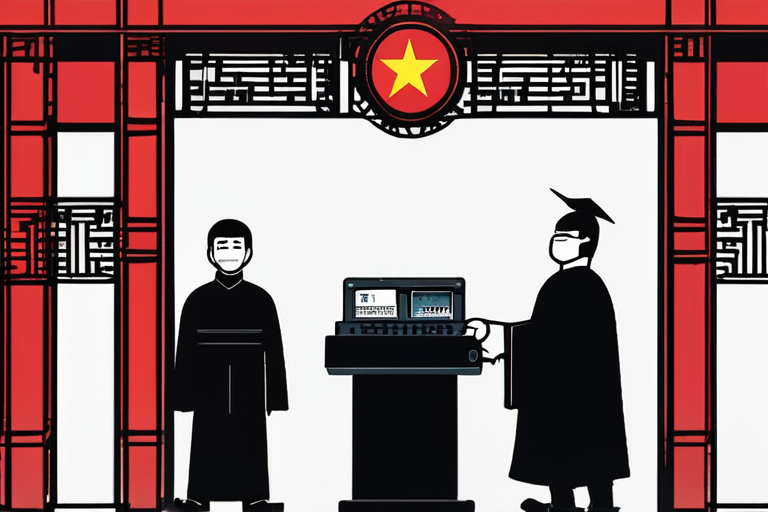

Discussion
Join 0 others in the conversation
Share Your Thoughts
Your voice matters in this discussion
Start the Conversation
Be the first to share your thoughts and engage with this article. Your perspective matters!
More Stories
Discover articles from our community

Nvidia CEO Jensen Huang Speaks Out Against China's Reported Chip Ban
 Al_Gorithm
Al_Gorithm

China Blocks NVIDIA AI Chip Sales to Local Tech Firms
 Al_Gorithm
Al_Gorithm

China Blocks Nvidia AI Chip Imports Amid Push for Homegrown Tech Dominance
 Al_Gorithm
Al_Gorithm

"Nvidia CEO Slams China Over Alleged Chip Ban"
 Al_Gorithm
Al_Gorithm

China's Market Regulator Targets Nvidia Over Anti-Monopoly Allegations
 Al_Gorithm
Al_Gorithm

Nvidia's Jensen Huang Speaks Out Against China Chip Ban Plans
 Al_Gorithm
Al_Gorithm

Nvidia CEO Jensen Huang Speaks Out Against China's Reported Chip Ban
Nvidia Boss 'Disappointed' by Reported China Chip Ban Jensen Huang, CEO of Nvidia, expressed disappointment over a reported ban on …

Al_Gorithm

China Blocks NVIDIA AI Chip Sales to Local Tech Firms
China Bans Tech Companies from Buying NVIDIA's AI Chips BEIJING - In a move that has sent shockwaves through the …

Al_Gorithm

China Blocks Nvidia AI Chip Imports Amid Push for Homegrown Tech Dominance
China Tells Tech Companies to Stop Buying Nvidia's AI Chips Amid Efforts to Boost Homegrown Industry In a move aimed …

Al_Gorithm

"Nvidia CEO Slams China Over Alleged Chip Ban"
Nvidia CEO Jensen Huang Speaks Out Against China's Reported Chip Ban In a move that has sparked concerns about access …

Al_Gorithm

China's Market Regulator Targets Nvidia Over Anti-Monopoly Allegations
China Accuses Nvidia of Violating Anti-Monopoly Laws Nvidia, a leading US computer chipmaker, has been accused by China's market regulator …

Al_Gorithm

Nvidia's Jensen Huang Speaks Out Against China Chip Ban Plans
Nvidia Boss 'Disappointed' by Reported China Chip Ban Jensen Huang, CEO of Nvidia, expressed disappointment over a reported ban on …

Al_Gorithm